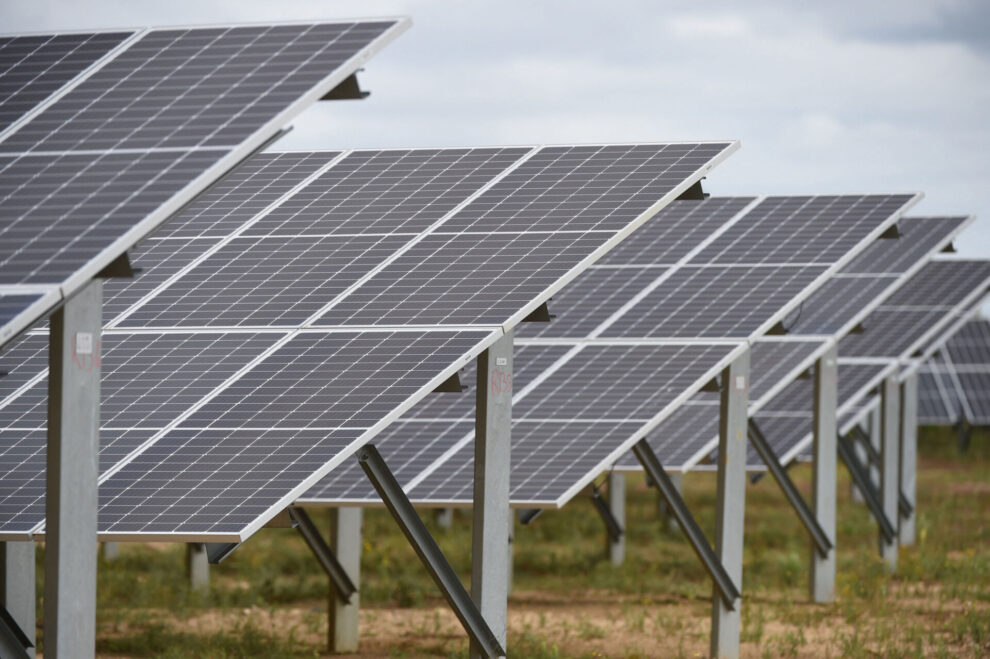Dubai-based renewable energy company Amea Power will develop an $86 million, 120 megawatt solar power project in Tunisia aimed at accelerating the country’s transition to clean power. The project will be the “first large-scale, privately financed” solar project in Tunisia and one of the largest infrastructure public-private partnership projects in the country in more than a decade, International Finance Corporation, a member of the World Bank Group, said in a statement on Tuesday.
IFC will provide Amea Power with up to $26 million in debt financing, including $13 million in concessional finance as part of the Clean Technology Fund. The African Development Bank will also provide debt financing of up to $26 million, which includes $13 million from the Sustainable Energy Fund for Africa.
The package will support the development, financing, construction, operation and maintenance of the project in the Kairouan governorate of Tunisia, IFC said. The contract for the project was ratified by the Tunisian government in March last year and is part of a renewable energy programme outlined by the government in 2018.
“The government is expressing its firm commitment to successfully bring to term the 120MW Kairouan PV Solar project, which represents a significant step forward in the country’s energy transition,” said Tunisia’s Prime Minister Ahmed Hachani. Countries need to triple the global installed renewables energy capacity to 11,000 gigawatts by 2030 in order to achieve net zero carbon emissions by 2050, the International Energy Agency said on Tuesday.
Meanwhile, the world has to increase clean energy spending from the $1.8 trillion expected in 2023 to $4.5 trillion per year by the start of the next decade to limit global warming to 1.5°C, the IEA said in its updated Net Zero Roadmap report. Tunisia, which has a target of achieving 35 per cent clean energy by 2030, is one of the region’s most exposed countries to climate change because of its dependence on climate-sensitive agriculture and high levels of urbanisation prone to flooding, the IFC said.
The country’s over-reliance on imported hydrocarbons to meet rising electricity demand has also threatened its energy security and made the sector vulnerable to price and exchange rate fluctuations. The Kairouan solar project aims to harness private financing to reduce dependence on imported fuel and gas-generated electricity, enhance the Tunisian power sector’s competitiveness and contribute to restoring macro-fiscal stability, the IFC added.
“This project represents a positive stride towards Tunisia’s green transition,” said Hela Cheikhrouhou, IFC’s regional vice president, Middle East, Central Asia, Turkey, Afghanistan and Pakistan. “South-South investments such as this one underscore the essential role that private sector partners can play in the energy transition. This project is in line with our strategy to enable South-South investments, including from Gulf Co-operation Council countries to emerging markets.”
IFC’s cross-border investments with GCC-based companies have reached $6 billion from IFC’s own account and $4.77 billion in mobilisation, financing 170 projects to date. It has also supported Amea Power in expanding across Africa and the Middle East. In November last year, IFC along with other partners provided a $770 million financing package to the company to support solar and wind projects in Egypt that will deliver more than 1 gigawatt in combined renewable energy capacity.
“Despite all the challenges that the market has been experiencing since the Covid pandemic, we are proud that we are delivering this project and honouring our commitment to supporting Tunisia’s transition to clean energy,”said Amea Power’s chairman Hussain Al Nowais. Amea Power is rapidly expanding its investments in wind, solar, energy storage and green hydrogen, and currently has a clean energy pipeline of more than six gigawatts across 20 countries.
Source: BUSINESS









